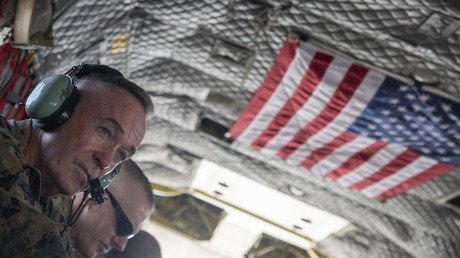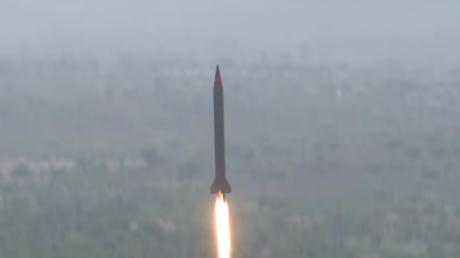US veterans overwhelmingly want troops out of Afghanistan – poll
A new poll shows a majority of US residents support withdrawing all troops from Afghanistan, 17 years into a war that shows no signs of ending. Support for winding down the interminable conflict is even higher among veterans.
The YouGov poll revealed that 61 percent of US residents would support the president removing all troops from Afghanistan. Some 69 percent of veterans supported the idea.
Everyone surveyed agreed that the process of withdrawal should begin soon – 63 percent of the general public and 64 percent of vets want to see “some or all” of the US troops stationed in Afghanistan home within five years.
Most respondents (55 percent of residents overall and 59 percent of veterans) agreed that the US government lacks clear military objectives in Afghanistan. Nearly three-quarters (73 percent) of veterans do not think the war has been a success for the US, an opinion shared by 68 percent of the general public.
The US entered Afghanistan almost exactly 17 years ago with the stated intention of defeating the Taliban and taking out Al-Qaeda. Now, the war is poised to overtake Vietnam as the longest in American history. While an elite SEAL team won praise for killing Al-Qaeda leader and 9/11 mastermind Osama Bin Laden in neighboring Pakistan in 2011, the conflict has dragged on since then, with no end in sight.
Only 38 percent of the general public believes George W. Bush made the right choice in sending troops to Afghanistan in 2001, while 54 percent of veterans still think it was the right thing to do. Over 104,000 people have died in the conflict, including at least 31,000 civilians and 2,351 US military personnel. The war costs taxpayers about $45 billion each year, and the US has spent more than $5.6 trillion on the “war on terror” (which is broader than just Afghanistan) since 2001.
The Special Inspector General for Afghanistan Reconstruction recently reported that $15.5 billion has been wasted on fraud, faulty programs and other failures since the start of the war, in addition to the $4.7 billion spent on “stabilization efforts and programs” that have failed to achieve any stabilization. Meanwhile, opium production, which had been dramatically reduced before the US invasion, is at record highs, increasing by 63 percent last year alone.
Although Americans are sick of this costly, endless war, only 41 percent support negotiating with the Taliban, which claims to control about half the territory of Afghanistan. Even by the America's own estimates, the US-backed government only controls 56 percent of the country, and 14 percent is controlled by insurgents.
In August 2017, Trump delivered an open-ended speech promising to lift restrictions on wartime spending and freeing military commanders to act without his authorization. He called for an end to “nation-building” efforts and didn’t rule out a place for the Taliban in post-invasion Afghanistan, but refused to give a timetable for withdrawal from the country.
The YouGov poll also revealed that almost half of Americans think the US should be less militarily engaged worldwide. Some 49 percent of veterans want to see less military engagement, while 45 percent of the general population concurs. Meanwhile, the nation’s political parties show their patriotism by passing gargantuan military budgets – a dramatic disconnect between the people and the officials who are supposed to represent them.
YouGov conducted parallel online polls of 1,823 members of the general public and 613 veterans.
If you like this story, share it with a friend!














